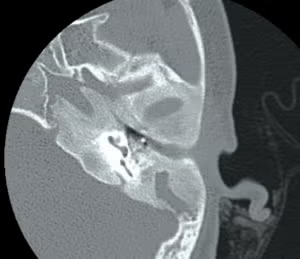Evidence supporting the addition of antivirals to corticosteroids in Bell’s palsy is statistically fragile. Across randomized controlled trials (RCTs), only a few patient outcome reversals would nullify reported significance, suggesting current conclusions about combination therapy lack robustness.
Radiotherapy for Growing Vestibular Schwannomas
Radiotherapy achieved durable tumor control in most growing vestibular schwannomas, with outcomes unaffected by pre-treatment tumor size or location.
Pre-Operative Imaging in Patients with 22qDS Undergoing VPD Surgery
Nearly half of children with 22qDS exhibited ICA medialization on imaging, with one in five needing a change in the surgical plan. Despite many authors advocating for routine imaging, its universal use is uncertain due to high study heterogeneity and limited outcome data.

Top 10 LARY and LIO Articles of 2024
ENTtoday is the official news magazine of the Triological Society, and its two sister publications—The Laryngoscope and Laryngoscope Investigative Otolaryngology—are the official peer reviewed journals. Here’s a look at the top 10 most-read articles from each journal from 2024.

Call for Resident Bowl Questions
The Resident Bowl team is collecting questions for the annual Resident Bowl happening at the 2026 Triological Society Combined Sections Meeting, January 22-24, in Orlando, Fla.

Resident Pearls: Pediatric Otolaryngologists Share Tips for Safer, Smarter Tonsillectomies
Tonsillectomy is a common yet potentially risky pediatric surgery, often performed early in otolaryngology training. Global pediatric ENT surgeons shared practical advice to help residents perform safer, smarter tonsillectomies, emphasizing safety, patient selection, innovation, and teamwork.
Composition and Priorities of Multidisciplinary Pediatric Thyroid Programs: A Consensus Statement
What are the essential components and priorities of multidisciplinary pediatric thyroid programs to ensure optimal care and outcomes?
Artificial Intelligence as Author: Can Scientific Reviewers Recognize GPT- 4o–Generated Manuscripts?
Can peer reviewers and editors reliably detect AI-generated manuscripts in scientific publishing?
Self-Administered Taste Testing Without Water: Normative Data for the 53-Item WETT
Can a practical, self-administered taste test provide reliable normative data for assessing gustatory function across age and sex?
Long-Term Particulate Matter Exposure May Increase Risk of Chronic Rhinosinusitis with Nasal Polyposis: Results from an Exposure-Matched Study
Does long-term exposure to fine particulate matter (PM2.5) increase the risk of developing CRSwNP?
- « Previous Page
- 1
- 2
- 3
- 4
- 5
- 6
- …
- 342
- Next Page »